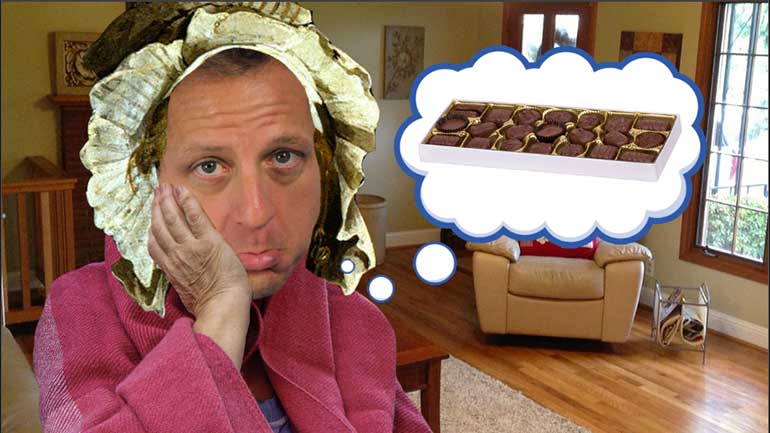ShmoopTube
Where Monty Python meets your 10th grade teacher.
Search Thousands of Shmoop Videos
History of Technology 5: Pasteurization 6 Views
Share It!
Description:
Pasteurization is a process that kills microbes in food and drink. We'd say sorry to the microbes, but, uh...we really like milk that doesn't kill us.
Transcript
- 00:02
Industrialization is a big deal if this were the oscars industrialization [Industrialization sitting on a chair with a presenter]
- 00:08
would be meryl streep minus the political speeches it gets nominated all the time
- 00:13
for most important historical event ever but now let's turn our attention to one
- 00:18
of history's smaller actors, pasteurization well pasteurization is more like [Little girl standing on stage]
- 00:24
Quvenzhane's Wallis that little girl from beasts of the southern wild
Full Transcript
- 00:29
small not too famous yet but clearly very talented and when we say talented
- 00:35
we mean really good at promoting a human health and growing our dairy industry so [Young girl appears on dairy farm]
- 00:39
yeah just like the Wallis kid... pasteurization is the process of heating
- 00:43
foods like milk to a certain temperature in order to keep most of the bacteria
- 00:47
from leading long and happy lives it sounds simple enough right well not when [Man with a glass of milk]
- 00:53
nobody knows how that bacteria exists well a guy named Louis Pasteur was the
- 00:58
first one to figure it out how? well by using his handy-dandy microscope to
- 01:04
investigate the bacteria living in foods this gave him the brilliant idea to [Louis inspecting bacteria through microscope]
- 01:08
slaughter all those microorganisms by boiling them to death
- 01:13
you know sucked for them but great news for us milk lovers, okay okay
- 01:17
some out there are thinking how is boiling an invention the pasteurization
- 01:22
is the reason our milk comes in nice plastic jugs instead of straight from
- 01:27
our family cow and it's also one of the reasons we aren't all dying of [Boy on death bed]
- 01:31
tuberculosis on a slightly related note people seriously used to believe that
- 01:35
tuberculosis caused vampirism that's one way to drain a cow luckily Louis Pasteur
- 01:40
came along to stop us from putting stakes through the hearts of our family
- 01:44
members it was an incredible one-man show [Man playing guitar]
- 01:47
well many technologies and systems are invented piecemeal over tens or hundreds
- 01:52
of years by lots of people tinkering and experimenting well the textile industry
- 01:57
is a good example it wasn't mechanized by a single person [People working in textile factory]
- 02:00
it took lots of inventions investors and laborers all working together to get it
- 02:04
done well pasteurization was discovered by a single guy named Pasteur who
- 02:09
obviously named the process after himself
- 02:12
of course, Pasteur did get some inspiration from
- 02:14
emperor napoleon the third who was the nephew of the napoleon we all know and [Pasteur sitting on couch and Napoleon III appears through the door]
- 02:19
love the emperor enlisted Pasteur to save France from the diseases found in
- 02:24
some wine so Pasteur obliged he probably
- 02:27
didn't have much of a choice there Pasteur's genius was in figuring out the
- 02:32
exact time and temperature that would annihilate the evil microscopic squiggly
- 02:38
things without changing the taste of the wine which for the french would have [French man takes sip of wine]
- 02:42
been a fate worse than death right well it wasn't too long before
- 02:45
people were using the same process on beer and vinegar it took a few more
- 02:50
years for the process of pasteurization to be applied to milk well why was its [Beer, Milk and Vinegar boiling in pans]
- 02:55
use in milk production so important well back in the day most people who consumed
- 03:01
dairy had a dairy cow somewhere nearby that meant the time between milking the
- 03:06
cow and drinking the milk was really short and bacteria didn't have a chance [Young boy milking a cow]
- 03:10
to take up residence but in the 19th century more people started living in
- 03:15
cities milk had to be shipped from rural areas and shipping in the nineteenth [Horse dragging bottled milk in a cart]
- 03:19
century wasn't exactly speedy or refrigerated so diseases like
- 03:24
tuberculosis had a field day and when tuberculosis has a field day
- 03:29
people die yeah horrible death milk did not do a body good pasteurizing the milk [Milk pasteurizing in glass containers]
- 03:35
made it last longer and conveniently killed tuberculosis so naturally
- 03:40
pasteurization changed the nature of the dairy industry...Farms could be larger and
- 03:44
further away which encouraged a more industrial model of agriculture and of
- 03:50
course Pasteur didn't stop with pasteurization his confirmation of germ
- 03:54
theory allowed him to do valuable work on rabies anthrax and smallpox remind us
- 04:00
to thank him the next time we find ourselves not dying of one of those [Boy thanking and hugging Pasteur]
- 04:04
horrible diseases
Up Next
GED Social Studies 1.1 Civics and Government
Related Videos
When you're about to marry the love of your life, not many things could stop you. However, finding out that your future hubby is keeping his crazy...
Here at Shmoop, we work for kids, not just the bottom line. Founded by David Siminoff and his wife Ellen Siminoff, Shmoop was originally conceived...
ACT Math: Elementary Algebra Drill 4, Problem 5. What is the solution to the problem shown?




